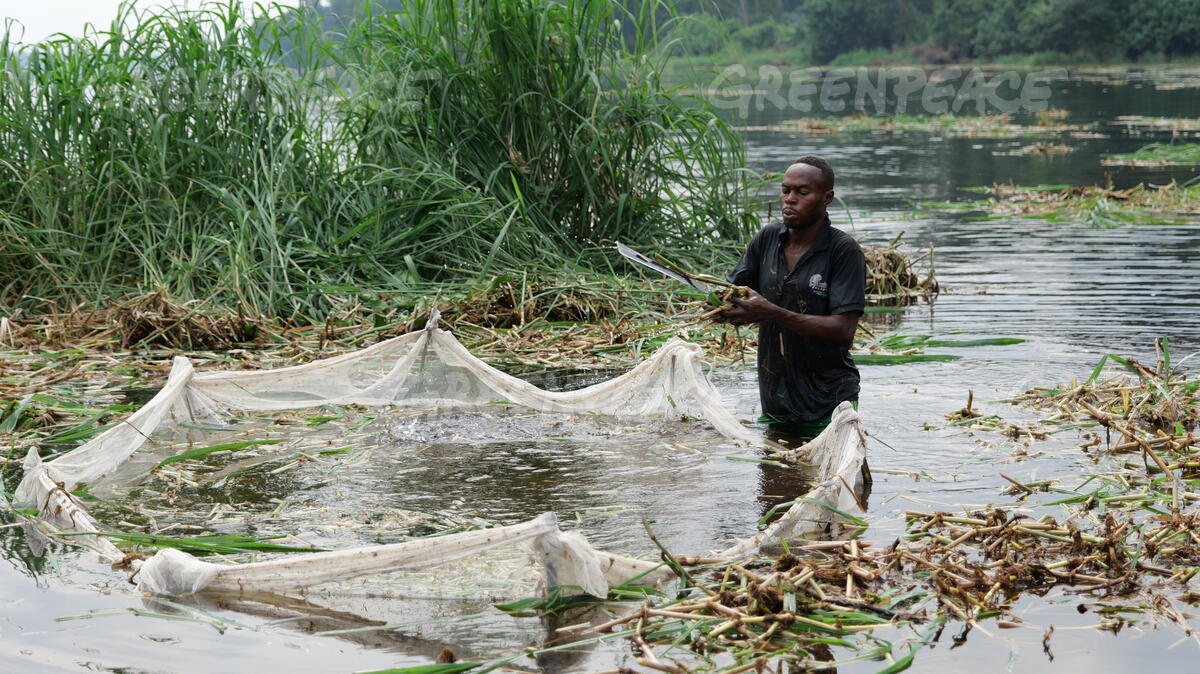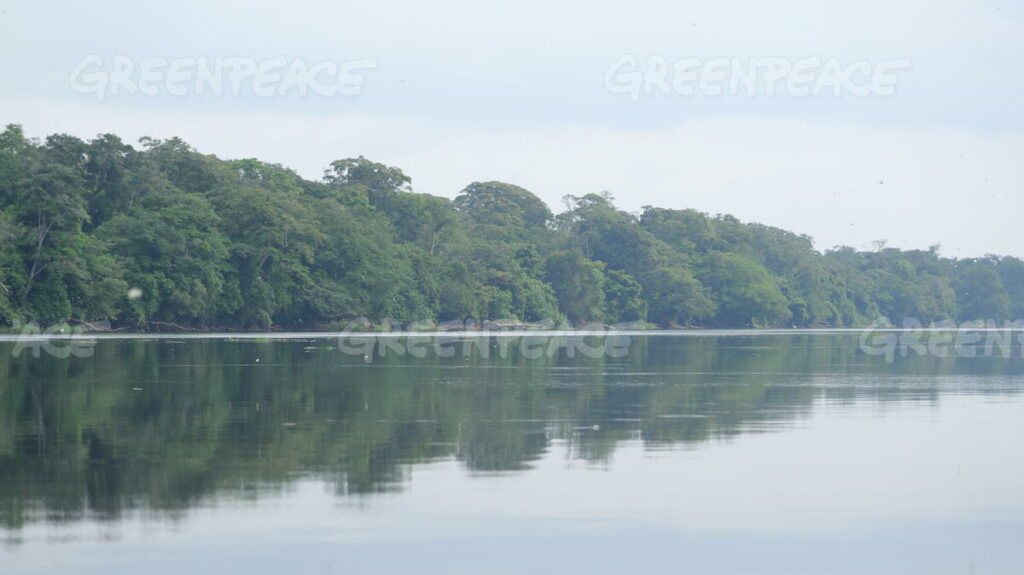The actioning of drilling rights to international oil companies by the government of The Democratic Republic of Congo (DRC) last July is meeting resistance by local communities that were not consulted and whose livelihoods are now threatened.
As previously reported by The Brussels Times, the auction covered 27 oil and three gas fields and encompasses an area more than 240,000 km2, including rainforest and peatlands that is storing vast amounts of carbon. The drilling fields are close to or overlap protected areas, including a gorilla sanctuary and the Virunga National Park, a UNESCO World Heritage Site.
Three of the oil fields are located on the verge of the Congo River basin and nine in the “central basin” rainforest region in the west of the country. The other 15 are in the east of the country, near the Albert and Tanganyika great lakes.
A report released on Thursday by Greenpeace Africa and other environmental NGOs details how the local communities will be affected by the oil- and gas drillings. The report is likely to embarrass DRC that prepares to host the PreCOP27 climate conference in Kinshasa in three days. The events in DRC take place before the UN climate change conference (COP27) in November in Sharm El-Sheikh in Egypt.
“This report demonstrates how the DRC oil and gas auction not only threatens the global climate and biodiversity, but exposes Congolese people to the disease, conflict, poverty, and corruption that inevitably come with the curse of oil,” said Irène Wabiwa Betoko, Greenpeace Africa’s International Project Lead for the Congo Basin Forest.
A resident of the village of Lukolela said that, “The government is neglecting its own people. It acts as if these forests were empty, that they’re without villages, without animals, it's heartbreaking.” Others repeatedly declared: “(if this is) something for the good of the population, (it) would not have been done in secret.”
On the eve of the auction, Greenpeace Africa conducted two field missions to dozens of communities in four prospective oil blocks covering about 100,000 square kilometers. None of the villages visited in the Equateur and Tshuapa provinces, where some of the oil blocks are located, dispose of clean drinking water – all of them relying instead on five local rivers.
The report estimates that more than one million people in the zone could be impacted by oil pollution and ensuing waterborne diseases. Pollution would also threaten food security in this poor region, where the capital city Mbandaka and other towns and villages rely on agricultural produce from the communities at risk.

A fisherman from the village Mpeka, DRC, © Greenpeace / Destin
In Haut Lomami province, 21 communities were visited across the designated Upemba oil block, overlapping much of Upemba National Park. At least 150,000 local fishermen, as well as thousands of farmers growing rice and other crops, currently live in relative comfort. Their livelihoods would be devastated by oil exploration and drilling.
Upon learning of plans to explore and drill for oil, the local population expressed fear of disease, famine, and pollution, as well as displacement from villages established on their ancestral lands:
“The government project is not the model of economic activity compatible with our environment. It is harmful to us who live here and everything around us. We breathe fresh air; we live in a healthy environment – why destroy all this and our fish?” asked a local community leader.
Locals also fear becoming “slaves” and the emergence of new social conflicts once oil exploration begins: “As our ancestors experienced, the creation of Upemba Park disrupted our way of life with restrictions on access and activities. We are not ready to welcome an oil company,” said another community member.
Aside from being a climate, biodiversity, health and rule-of-law catastrophe in the making, the oil auction is also of dubious legality, the report says. Nearly half of the blocks appear to be auctioned without following the official tendering procedure and Congolese legislation.
The report calls on the DRC government to immediately cancel its plans for oil and gas, and to promote alternative investments in renewable energies, in order to end the energy poverty from which 72 million Congolese suffer.
According to Greenpeace, the COP26 forest protection agreement between donor countries and DRC greenlights oil and gas activity across the rainforest, protected areas and peatlands. The donor countries, including EU, are urged to work with the Congolese government on alternatives to oil and gas activity and to condemn the latter’s impacts on human rights, the rule of law and the environment.
At the time of the auction, a European Commission official told The Brussels Times that the Commission is closely following the developments relating to the auction and sees it as a worrying step. The Commission said that it will share EU’s concerns with the Congolese government.
The Brussels Times

